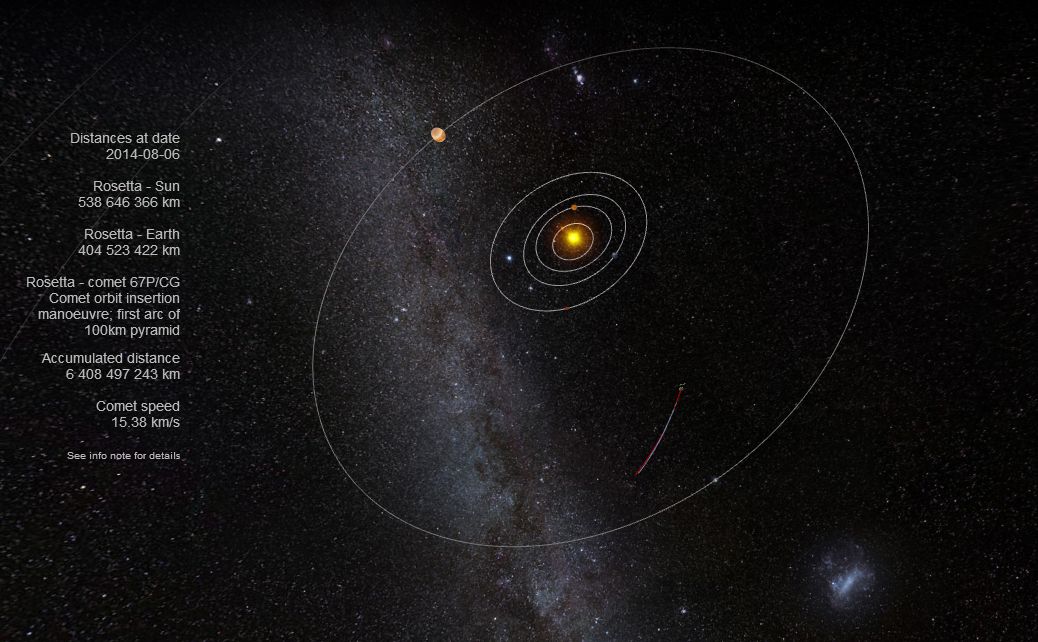Rosetta Satellite Is the First to Ever Orbit a Comet
It’s been a long trip, but Rosetta has finally reached its destination
/https://tf-cmsv2-smithsonianmag-media.s3.amazonaws.com/filer/69/68/696896a4-5781-44fd-9b3d-6af9b1b37873/08_06_2014_rosetta.png)
The European Space Agency's Rosetta satellite marked a stunning achievement in spaceflight earlier this morning when it dropped into orbit around the comet 67P/Churyumov-Gerasimenko—the first artificial satellite to ever orbit a comet.
Rosetta has been flying through space for more than ten years on a trip spanning nearly 4 billion miles to reach its current location. It now gently drifting 62 miles above surface of the comet.
That comet is blasting along at a stunning 24,600 miles per hour as it arcs toward the Sun. Rosetta, by comparison, is orbiting the comet at a relative crawl of just a few feet per second. Its proximity gives the team at the European Space Agency a prime vantage point for taking close-up photos of the comet's surface. (For the latest, check Rosetta's Twitter page.)

Rosetta is the first satellite to orbit a comet, but it's not the first to study one close up. In 2004 NASA's Stardust spacecraft passed within a few hundred miles of the comet Wild 2. Stardust spent just a few hours in Wild 2's tail collecting small fragments of material that were blown off the comet as it melted in the Sun's heat. The Stardust mission returned those samples back to Earth so that they could be studied in the laboratory.
For the next 15 months, Rosetta will stay in close proximity to the comet it's orbiting, says the BBC. But the real show will start in November when the ESA team will guide a second robot, which Rosetta is carrying, to land on the comet's surface.
Comet 67P/Churyumov-Gerasimenko, a mass of ice and dust roughly 2.5 mile wide, is flying toward the Sun. Soon it will begin to heat up, to melt and to vent some of its ancient material into space. And when it does, Rosetta and the lander Philae will be there, watching.
/https://tf-cmsv2-smithsonianmag-media.s3.amazonaws.com/accounts/headshot/smartnews-colin-schultz-240.jpg)
/https://tf-cmsv2-smithsonianmag-media.s3.amazonaws.com/accounts/headshot/smartnews-colin-schultz-240.jpg)